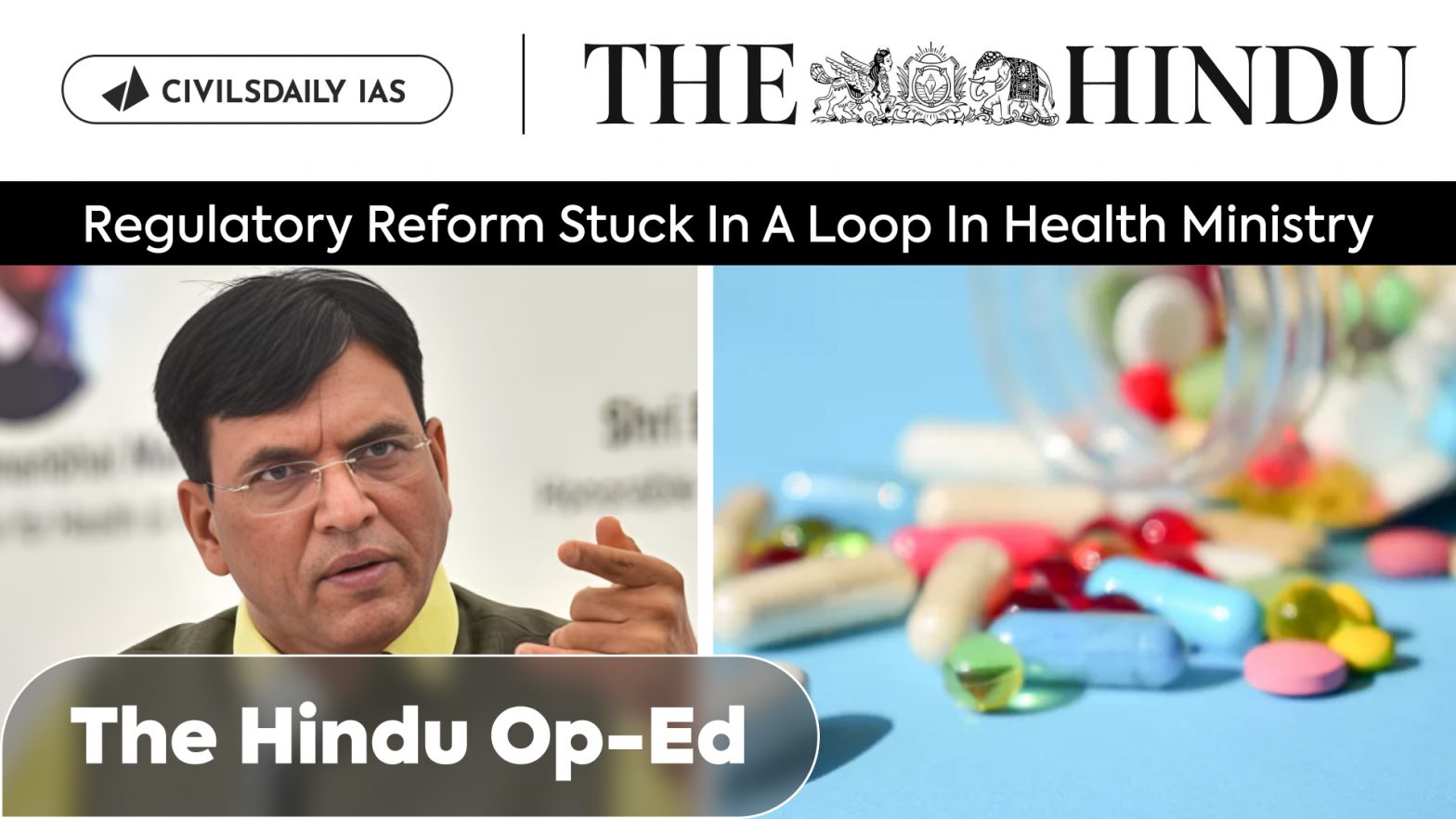| PYQ Relevance: Q Bringing out the circumstances in 2005 which forced amendment to the section 3(d) in Indian Patent Law, 1970, discuss how it has been utilized by the Supreme Court in its judgement in rejecting Novartis’ patent application for ‘Glivec’. Discuss briefly the pros and cons of the decision. (UPSC IAS/2013) Q What do you understand by Fixed Dose drug Combinations (FDCs)? Discuss their merits and demerits. (UPSC IAS/2013) |
Mentor comment: Today’s editorial highlights ongoing challenges within India’s Health Ministry regarding the implementation of necessary regulatory reforms. This topic is significant due to the critical need for effective healthcare governance, especially in light of recent public health emergencies, such as the emergence of Mpox (monkeypox) cases in India.
Following the Mpox case, the Union Health Ministry issued advisories urging states to enhance screening and contact tracing efforts. This reflects the urgent need for a robust regulatory framework to manage public health threats effectively.
The article discusses how regulatory reforms are essential for improving the responsiveness and efficiency of the health sector, particularly in crises.
_
Let’s learn!
Why in the News?
Due to the ongoing regulatory challenges, the Health Ministry has established a National Task Force to address healthcare challenges.
- The stagnation in reforms and public policy efforts could hinder the government’s ability to manage current and future public health challenges effectively.
| The Drugs Controller General of India (DCGI) introduced new policy initiatives in April 2024, which aimed at enhancing public health through recall guidelines, good distribution practices, and regulations against similar brand names. However, these measures are criticized for lacking legal enforcement and being poorly conceived, perpetuating a cycle of ineffective reforms. |
Key highlights by the 59th Report Parliamentary Standing Committee (PSC):
- Storage Standards: The issue of lack of proper standards for storage of drugs, especially during transportation was raised by the Supreme Court in Swantraj & Ors vs State Of Maharashtra (1974).
- Confusing Brand Names: The issue of similar brand names for different drugs leading to prescription errors was flagged by the Court in Cadila Healthcare Limited vs Cadila Pharmaceuticals Limited (2001).
- Stagnation in Reforms: Despite over a decade of discussion, these issues remain unresolved due to bureaucratic inertia.
- Lack of Guidelines: Drugs ordered to be withdrawn in one State due to quality concerns were being sold in a neighboring state.
- Non-Binding Guidelines: Recent drug recall guidelines lack legal enforcement, perpetuating ineffective reforms.
What are the challenges around Procedural implementation?
- Lack of Consensus: After the PSC report, a proposal to adopt good distribution practices guidelines formulated by the WHO came up for discussion in 2013.
- The distribution practices and guidelines were to be made legally binding but it faced opposition from DCC because it was difficult to implement across the estimated six lakh retail outlets in the country.
- Ineffective Laws and Procedures: After receiving a rap on its knuckles from the Delhi High Court in 2019, the ministry created a rule requiring pharmaceutical companies to provide a self-declaration that their proposed brand name was not similar to any of the existing brand names in the market.
- In most other countries, it is the duty of the regulator to vet the brand name, to ensure that it is not confusing or misleading from a public health perspective.
- When trademark applications are filed, the Registrar of Trade Marks conducts a perfunctory “confusion analysis” that does not include a public health perspective.
- Enforcement issues: In practical, the DCGI lacks the legal power to make rules that are binding and have the force of law. Only the Ministry of Health has that power under the Constitution.
Need to break the procedural loop:
- With every newly appointed joint secretary, files go through with repeated consultations with stakeholders in the pharmaceutical industry.
- In each of these consultations, the trade associations of pharmacies and pharmaceutical companies use every trick to stall the concrete action.
- Hence, regulatory governance needs to be consistent and avoid the higher political interference.


